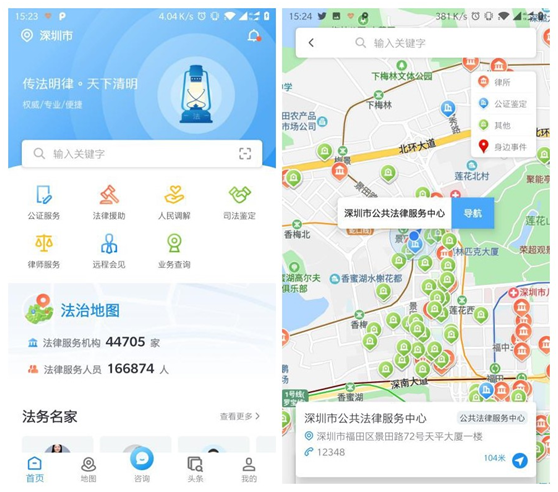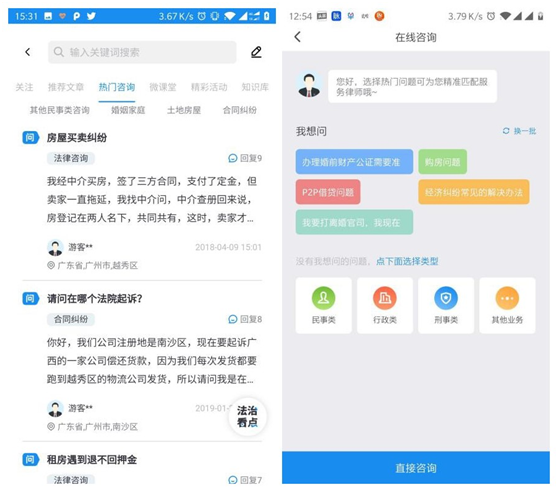Shenzhen dedicated to upgrading WeChat-based legal service platform
Shenzhen, a metropolis in South China's Guangdong province, has been dedicated to improving its public legal services since it became one of China's first special economic zones four decades ago.
In 2015, the city's judicial department turned to the popular social messaging app WeChat to provide a mini program called Rule of Law Map. Since then, the map has evolved into a multi-functional comprehensive legal service platform.

Initially, the map, serving as a mobile portal of the province's official legal service website, was used by the public to find the nearest legal service institutions.
In 2016, the department upgraded the platform by providing free legal consultations. Lawyers hired by the department worked shifts to offer advice, and helped platform users find the types of legal service they needed, whether it be a lawyer, a notary, legal aid, mediation or judicial authentication.
A year later, the department further improved the program by matching the data on the legal service website with the map's geographical data. By doing so, it strengthened supervision over legal services institutions and practitioners.
In the face of the COVID-19 outbreak this year, the department updated the program once again so it realized online provision of the platform's various legal services.

With over 44,000 legal service institutions taking part, more than 166,000 legal professionals are now providing services on the platform. They have, so far, answered roughly 380,000 questions from the public and handled over 16,000 legal affairs online.

Ministry of Justice of the
People's Republic of China
All rights reserved. Presented by China Daily.
京ICP备13016994号-2


